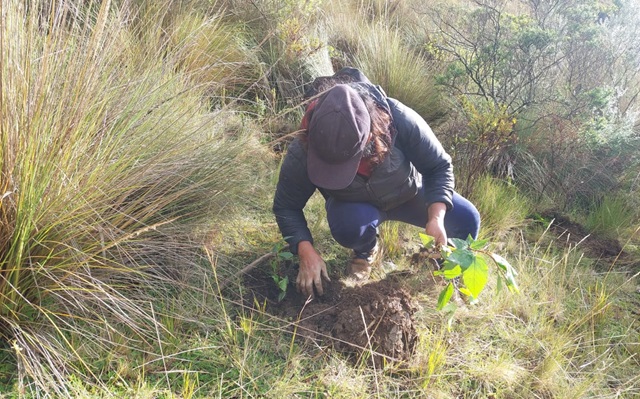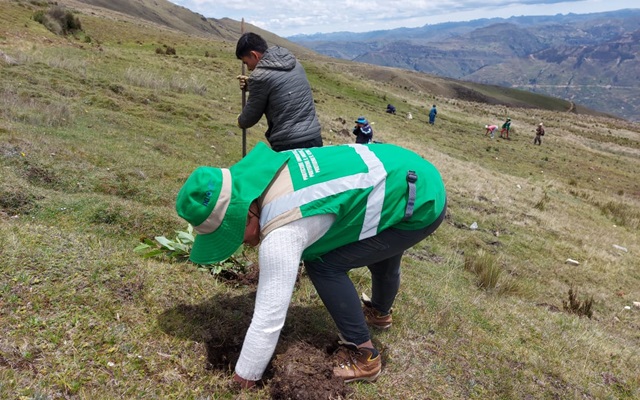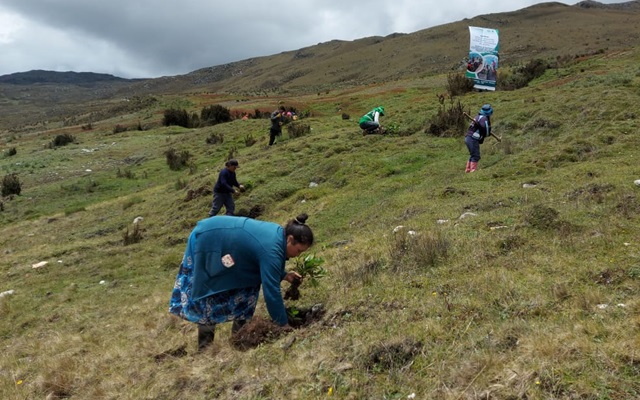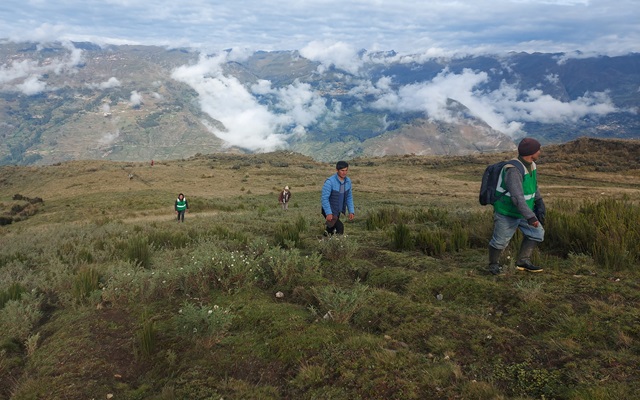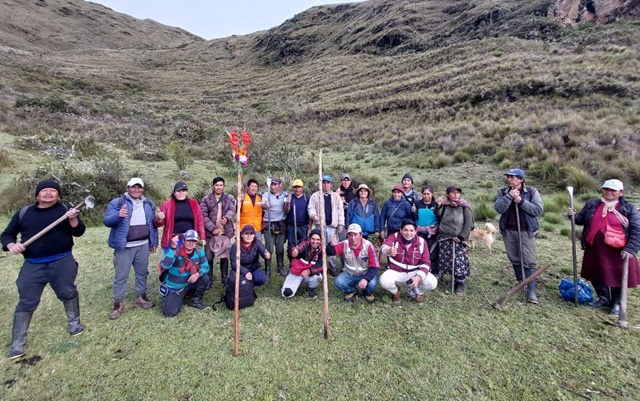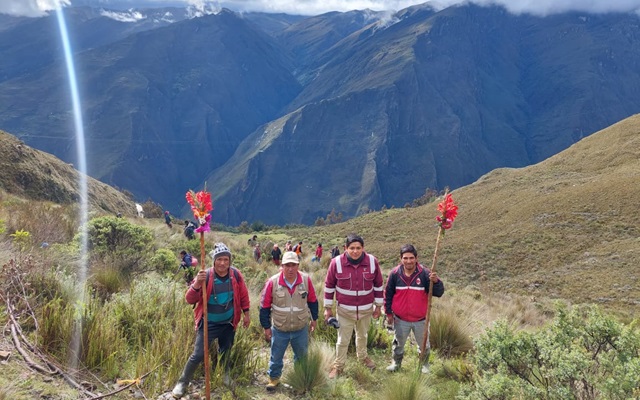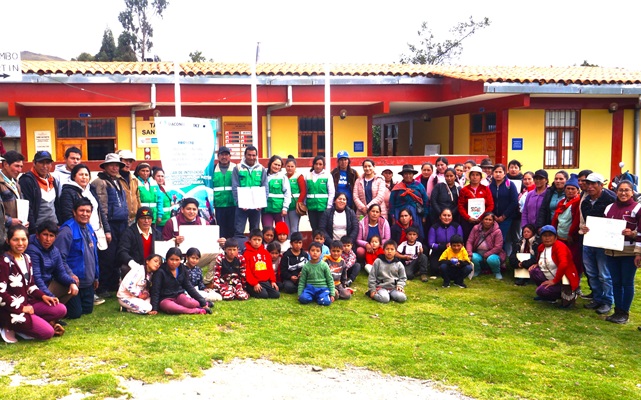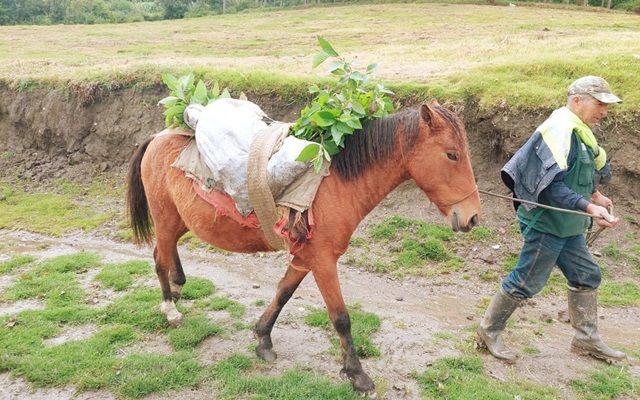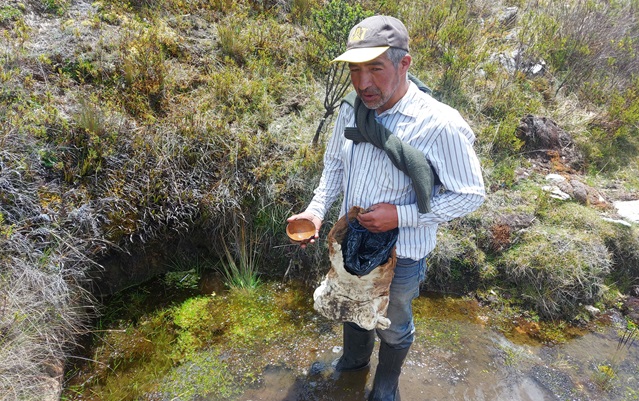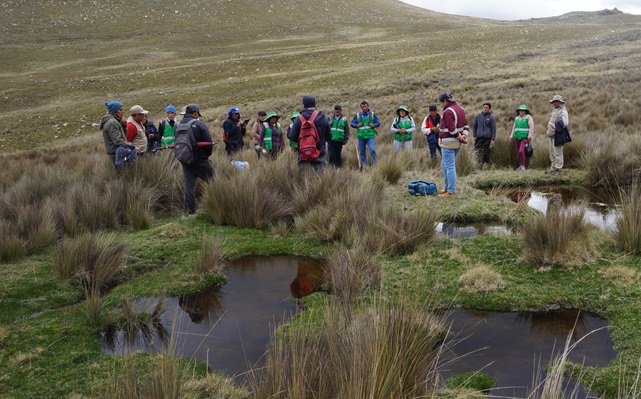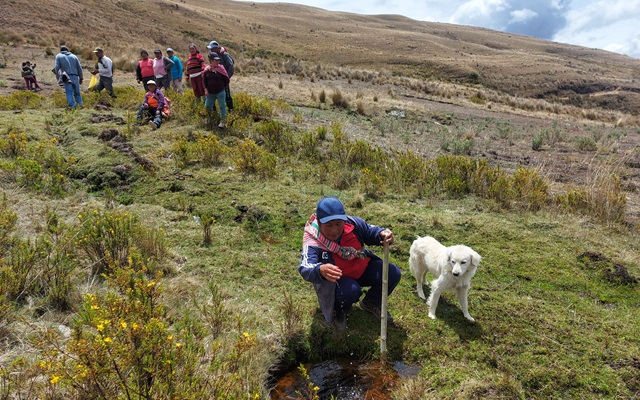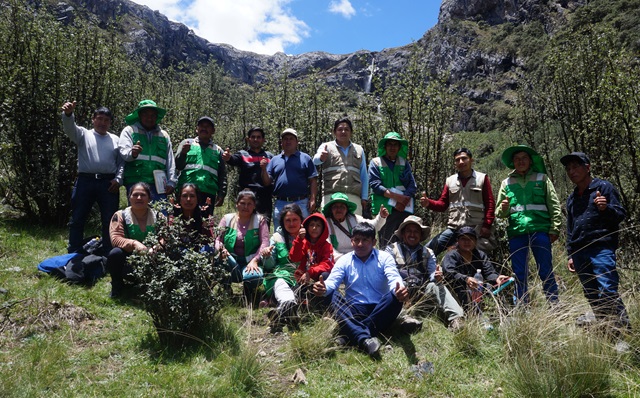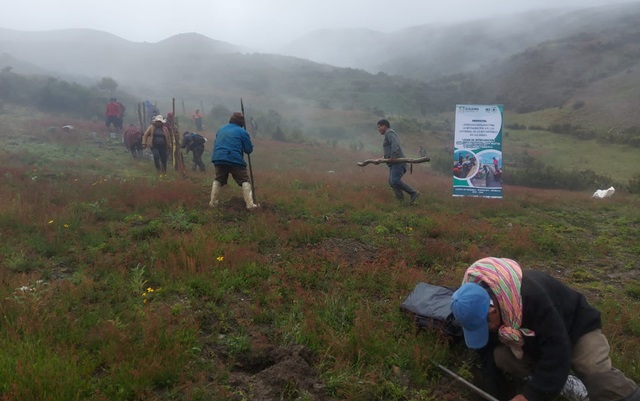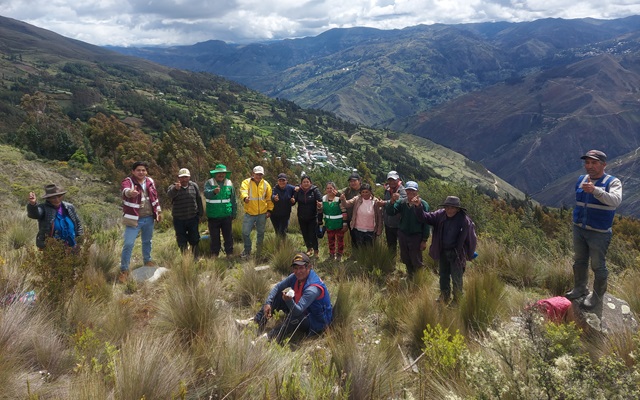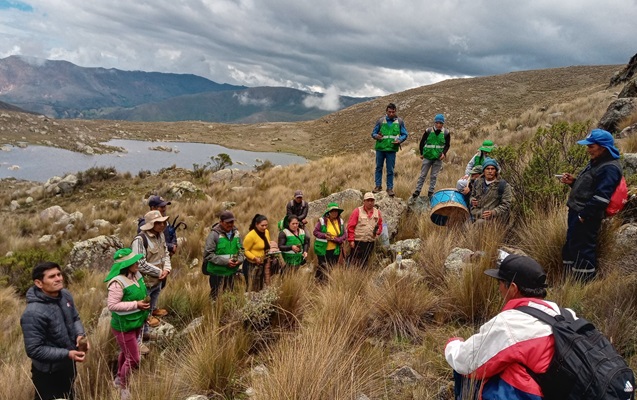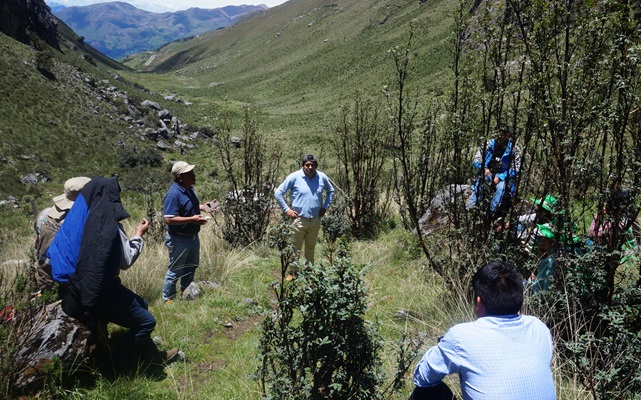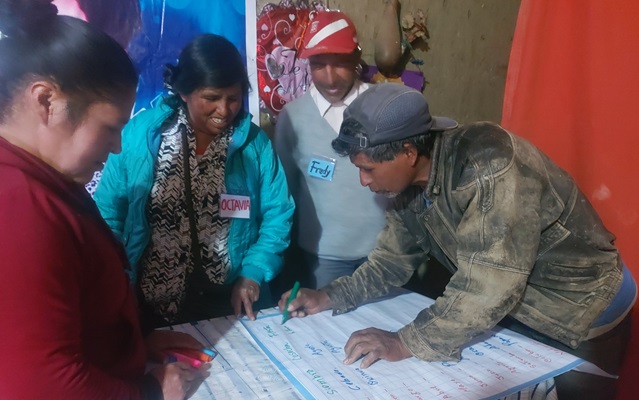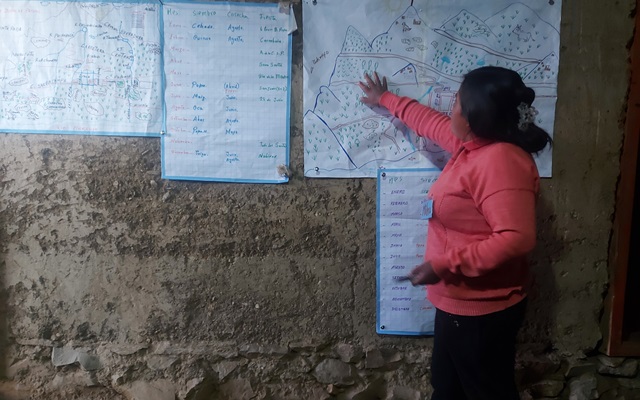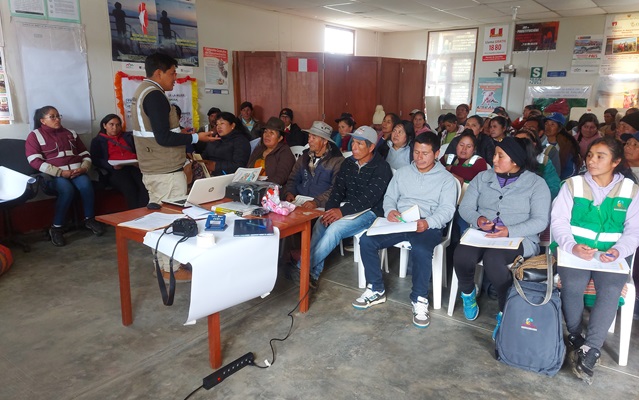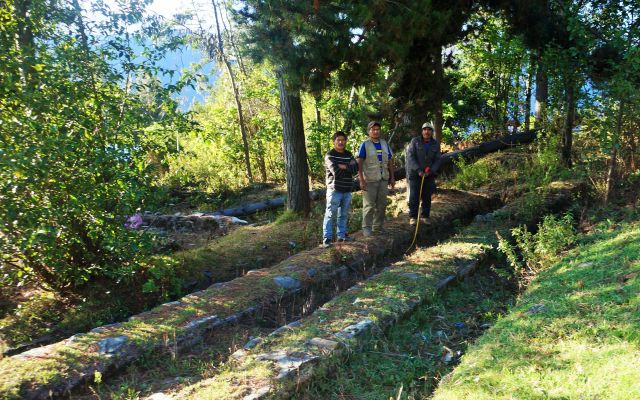Indigenous leadership for the restoration and sustainable use of biodiversity in the Andes
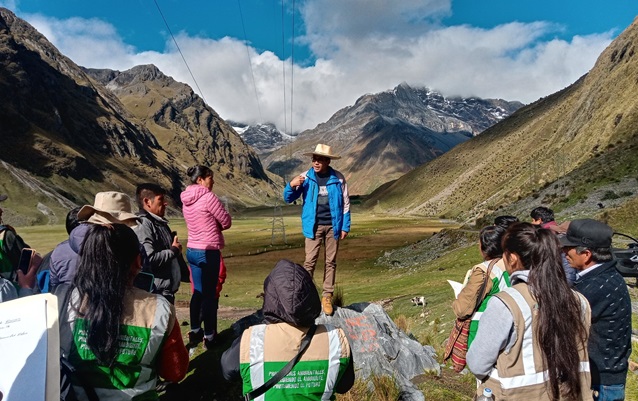
Huanuco is the second poorest region in Peru. The region is strongly affected by the impacts of climate change, which particularly affect the water availability. This IKI Small Grants project aims to create a productive ecosystem in Chavin de Pariarca district, protected by community management mechanisms that recover ancestral knowledge and practices and provide equal opportunities for men and women. By conserving and recovering 60 hectares of natural and cultural resources, building three forest nurseries of native species, and holding several trainings to manage, conserve and protect areas, the organisation implements mechanisms for the sustainable management of productive ecosystems.
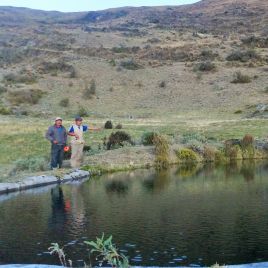
INITIAL SITUATION
Huanuco region has the second highest incidence of poverty at national level. The district of Chavin de Pariarca is populated by 484 families with an average poverty level of 54 per cent and 20 per cent of extreme poverty. Lack of technical assistance, training, and financing result in low production yields, which are mostly used for self-sufficiency and the local market. In addition, most of the land is given to male household members, which means that women in the region are largely disadvantaged in accessing land. The region is strongly affected by the impacts of climate change, especially in terms of hydrological conditions. This affects water resources and leads to low crop productivity.
TARGET GROUP
This IKI Small Grants project targets 150 people from farming communities in the Andean region of Huamalíes province, consisting of 90 women and 60 men. These members of the target group are each part of a household, resulting in a total of 150 families benefitting from the project, which is about 31 per cent of the total population of the Chavín de Pariarca district. The beneficiaries include 40 families in San Juan de Pampas, 20 families in San Martin and 90 families in Chavín de Pariarca.
APPROACH AND ACTIVITIES
The IKI Small Grants project aims to implement mechanisms for the sustainable management of productive ecosystems. For this, the community actors identify resources, potentialities, biodiversity, and ancestral knowledge and collect the results in a report. The project includes six trainings on natural and cultural resources management for 150 producer families, community leaders and local stakeholders. The organisation supports the exchange of experiences at the intercommunity and regional level by visiting a similar project and by creating spaces for exchange. They organise three meetings to elect ten people who form a committee for the conservation of natural and cultural resources. To manage and promote mechanism, committee members receive three workshops to reinforce their soft skills. Nine meetings are organised to produce community life plans with a gender and intercultural approach. Those plans provide a self-diagnosis as well as an action plan allowing to create and maintain an ecosystem.
The IKI Small Grants project includes training for community leaders to manage areas for conservation, protection, and recovery of natural and cultural resources. The organisation develops for community leaders four workshops on natural and cultural resources techniques and three sessions to develop and validate the monitoring and control plan for the productive ecosystems. Nine field trips aim to identify areas and mechanisms to conserve and recover. In total, the project aims to conserve and recover 60 hectares of natural and cultural resources. Finally, community leaders systematise the recovered ecosystems and draw lessons from them.
The project aims to strengthen the capacity of local stakeholders for sustainable governance of their territories. For this, the organisation develops nine workshops for the generation of a productive ecosystem, four workshops on integrated native forest management and microclimate generation, four leadership workshops for women in governance and sustainable management of ecosystem services and four trainings in rural communication and development. Moreover, the organisation builds three forest nurseries of native species and elaborates an audio-visual material on the management of productive ecosystems by women.
LATEST PROJECT HIGHLIGHTS AND IMPACTS
- Conducting a participatory study about productive systems of each community
- Facilitation of 3 workshops on the management of natural and cultural resources for local actors
- Facilitation of an intercommunity exchange of experiences
- Founding of an intercommunity committee on biodiversity protection
- Planting of 10,600 seedlings of native forest species
- Installation of 4 forest nurseries
CAPACITY DEVELOPMENT
IKI Small Grants supports Diaconia Peru in their organisational capacity development through:
- development of training processes on the elaboration of communicational tools.
- development of competencies and skills in results-based project management a strategy that lays the foundation for an integrated approach to planning, monitoring and evaluation of development projects.
ABOUT THE ORGANISATION
Diaconía – Asociación evangélica luterana de ayuda para el desarrollo comunal is a NGO founded in 1983. Its mission is inspired by the faith in christ. The organisation supports vulnerable and at-risk populations as facilitators in their sustainable development processes and in the full exercise of their civil, political, economic, social, cultural, and environmental rights. They are currently working with the most vulnerable rural population in four regions of the country by designing and implementing institutional strengthening, social, economic, and environmental management, and organisational development projects.

